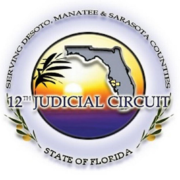Maintaining Privacy In Your Divorce
Just because you are going through divorce does not mean you have to give up your privacy. Yes, in traditional divorce, proceedings are open to the public. Sure, most Florida divorce lawyers will tell you that you have to file your divorce in the county where you last resided with your spouse, making it easier for family, neighbors, and business competitors to snoop on you. And, historically, you have been required to file financial affidavits in a court file that anyone can access.
Fortunately, there are alternatives to all of these issues to help maintain your privacy.
Collaborative Divorce – Private Negotiations
Collaborative Divorce is a private form of dispute resolution where discussions take place in discreet conference rooms or via Zoom rather than in a public courtroom.
In the Collaborative Process, you and your spouse each have your own, separate lawyers to provide each of you with independent legal advice. Your lawyers are prohibited from fighting in court; if court action is needed, your Collaborative Lawyers are fired. This aligns the incentives of both lawyers and both spouses to focus on reaching an agreement rather than stir up trouble and engage in costly trial work. And the vast majority of Collaborative Divorce matters are able to reach a full resolution; about 92% of Collaborative matters we have been involved in have been successful.
Oftentimes, you and your spouse will have additional support in your Collaborative Divorce. A neutral Collaborative Facilitator, who specializes in communication, family dynamics, and childhood development, will help you navigate and overcome the emotional impediments to divorce. Additionally, if you have children, the Facilitator will help craft a parenting plan tailored to your kids’ needs rather than have a cookie-cutter parenting plan based on a bunch of legal factors.
Further, you may have a Financial Neutral on your Collaborative Divorce team. We have found that many divorce discussions get stuck because one spouse just does not understand the family finances or fears they are being taking advantage of. The Financial Neutral, who is typically a CPA or financial advisor, works with both spouses to efficiently gather needed financial information and help even the playing field so both of you can feel that you are making informed decisions. This helps play a big role in getting through the “fight, flight, or freeze” instincts that can overtake a person going through divorce.
Choosing Where To File Your Divorce for Privacy
Most Florida divorce lawyers will tell you that you need to file your divorce in the county where you and your spouse last resided together. And that is because most Florida divorce lawyers focus their practice on contested trial work; if you file a contested matter in the wrong venue, and your spouse objects, then you have to go through a costly legal fight and you may then need to pay to have your matter transferred to the “correct” county.
One big problem in filing in your home county is that it is easy for business competitors and nosey neighbors to learn about your divorce from the public court files. Thus privacy goes out the window if you follow the advice of traditional divorce lawyers on venue.
Fortunately, if you have gone through the Collaborative Divorce process, you have options. Because only a judge can officially dissolve a marriage, you still need to file for divorce and have a final judgment granted. But you and your spouse can by agreement select the county in Florida where you want to file your divorce. And, in our experience, there are certain venues with procedures more geared to helping maintain privacy and where you can sign documents rather than testify in an uncontested final hearing. We can explore these options with you.
Keeping Financial Affidavits Private
In almost any divorce process, you and your spouse need to fill out and exchange financial affidavits. The financial affidavits list your individual incomes, expenses, assets, and debts. And, historically, you have been required to file your financial affidavits in the public court file. Of course, experienced Collaborative Divorce lawyers have known, as alluded to above, that there are certain counties that have been flexible in waiving this requirement. Recently, though, there has been an update in the Florida Family Law Rules of Procedure that allows for a waiver of the financial affidavit filing requirement in every county.
Beginning in November 2023, Florida Family Law Rule of Procedure 12.285(c)(2) now provides that, upon agreement, spouses can waive this by filing a notice that states the following:
(A) that evidence of their current or past financial circumstances may be necessary for future court proceedings;
(B) they each have provided the other with a fully executed and sworn financial affidavit in conformity with Florida Family Law Form 12.902(b) or 12.902(c), as applicable;
(C) that the responsibility to retain copies of all affidavits exchanged rests solely with the parties;
(D) that the waiver only applies to the current filing and does not automatically apply to any future filings; and
(E) that the waiver may be revoked by either party at any time.
Recently, I have heard that traditional divorce lawyers are still advising their clients to file their financial affidavits just in case they have a dispute in the future. This is just crazy to me! First, in Collaborative Divorce, we acknowledge that circumstances may change or there may be a dispute in the future. Rather than running to a judge to decide your fate, we build in future dispute resolution clauses in our agreements giving you private ways to settle these issues. Further, if you ultimately do need to go in front of a judge, you can always file your financial affidavits then. There is no need to file financial affidavits now in the small chance you will need a judge to review it later.
Conclusion on Maintaining Privacy in Your Divorce
If you are considering divorce and concerned about privacy, then the traditional divorce route is probably not right for you. Fortunately, you have options, and we are happy to walk through them with you. We have offices in Saint Petersburg, Tampa, and Sarasota, and we represent clients virtually throughout Florida. We welcome you to click the button below to speak with us.
Adam B. Cordover is an author of an American Bar Association Book on Collaborative Practice. He is a member of the Board of the International Academy of Collaborative Professionals and recipient of the inaugural Visionary Award of the Florida Academy of Collaborative Professionals. Adam has taught judges, general magistrates, lawyers, mental health professionals, and financial professionals about Collaborative Divorce and Out-of-Court Dispute Resolution throughout the United States, Canada, Israel, France, Brazil, and beyond.







